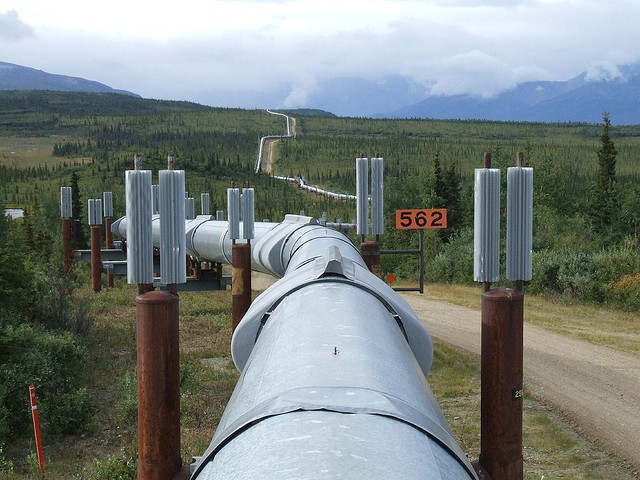Mobile technology is changing our lives, including how we drive and maintain our vehicles, where we get gas and how much we pay for it, to which route we take to work every day. There are apps to record your service history and even ones designed to help you complete simple car fixes on your own. Below are examples of some useful vehicle maintenance and repair apps for businesses and individuals.
Audit, Compliance and Risk Blog
Vehicle Maintenance: Mobile Apps Making Life Easier
Posted by STP Editorial Team on Mon, May 26, 2014
Tags: Business & Legal, Employer Best Practices, Health & Safety, Training, Transportation
Supreme Court Reinstates EPA Interstate Regulation of Upwind Air Emissions
Posted by Jon Elliott on Wed, May 07, 2014
On April 29 the US Supreme Court reversed a lower court decision, reinstating US Environmental Protection Agency (EPA) rules requiring states to control emissions of air pollutants that contaminate downwind states (EPA v. EME Homer City Generation, LP). The Cross-State Air Pollution Rule (CASPR, or the “Transport Rule”) implements “Good Neighbor” provisions in the Clean Air Act (CAA) designed to ensure that upwind states’ emissions don’t prevent a downwind state from meeting air quality standards. This ruling frees EPA to implement rules requiring tighter emission controls on pollutant sources in upwind states.
Tags: Business & Legal, Health & Safety, Environmental risks, Environmental, EHS, climate change, Transportation
U.S. Transportation Safety—A Drug and Alcohol Clearinghouse?
Posted by STP Editorial Team on Wed, Mar 26, 2014
In an effort to reduce “significant risk to public safety,” the U.S. Department of Transportation (DOT) now proposes to establish a new Commercial Driver’s License Drug and Alcohol Clearinghouse for drug and alcohol test results for drivers operating under a commercial driver’s license (CDL). The clearinghouse would also track traffic citations for driving while under the influence of alcohol or drugs (DUIs).
Tags: Business & Legal, Employer Best Practices, Health & Safety, Employee Rights, Training, EHS, Transportation
We’re still a long way from the paperless office, but the paperless cab may be upon us. The Federal Motor Carrier Safety Administration (FMCSA) recently adopted a new rule that requires drivers of interstate commercial buses and trucks to record their hours using electronic logging devices (ELDs). According to the administration, widespread use of these devices, also known as electronic onboard recorders, will reduce hours-of-service violations by hampering efforts to misrepresent time put in on the job—and that reduction will result in fewer crashes and fatalities.
Tags: Corporate Governance, Business & Legal, Employer Best Practices, Health & Safety, Employee Rights, Training, EHS, Transportation
Motor Vehicle Air Conditioner (MVAC) Refrigerants Have Environmental Impacts
Posted by STP Editorial Team on Wed, Feb 05, 2014
EPA has a new fact sheet, “Section 609 Regulatory Requirements: Motor Vehicle Air Conditioning” that outlines the requirements to be followed to prevent the release of refrigerants during the servicing of MVACs and MVAC-like appliances. This fact sheet discusses the regulatory requirements for technician training and certification, sales restrictions, safe disposal, recordkeeping, equipment certification, and approved equipment. It also addresses the importance of protecting our ozone layer and explains the serious impact MVACs can have on the climate:
Tags: Employer Best Practices, Health & Safety, California Legislation, Environmental, Transportation
The year 2013 has been another relatively quiet one for most environmental health and safety (EH&S) compliance personnel. Continuing differences in Congress have stymied would-be initiatives on both sides of the partisan aisles, so there were no meaningful legislative changes.
Tags: Health & Safety, OSHA, Environmental risks, Environmental, EHS, EPA, Hazcom, Transportation
Canadian Oil Industry—Liability Insurance for Rail vs. Pipeline
Posted by STP Editorial Team on Wed, Jan 29, 2014
Canadian regulators are focusing their attention on facilitating development in the oil and gas industry, and they are also increasing the accountability of operators. Significantly, environmental liability insurance requirements are expected to increase for both pipeline and railway operators, reducing the extent to which governments and taxpayers cover the costs of cleanup and other damages caused by spills and accidents.
Tags: Business & Legal, Environmental risks, Environmental, Oil & Gas, Insurance, Insurance Claims, Transportation, Canadian
Motor Carrier Registration Systems to be Upgraded and Web-Based
Posted by Jon Elliott on Fri, Aug 30, 2013
Last week the Federal Motor Carrier Safety Administration (FMCSA) published major changes in the registration requirements it imposes on “motor carriers” that use roads and highways to transport materials—including hazardous materials. Over the next two years, these changes will consolidate four separate registration systems into a new web-based Unified Registration System (URS), designed to cover every domestic entity subject to FMCSA authority. Most elements of the new regulations will take effect on October 23, 2015, to allow FMCSA to develop additional URS features and to conduct several related rulemakings, and to allow regulated entities to prepare for the changes in compliance requirements.
Tags: Health & Safety, Environmental risks, Environmental, Hazcom, Transportation








